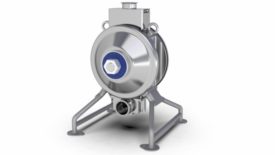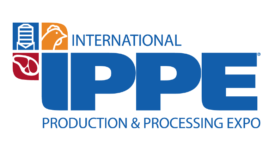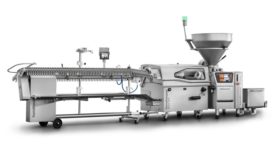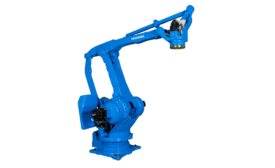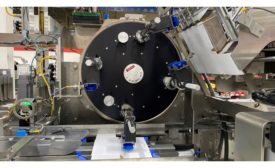Home » Keywords: » equipment
Items Tagged with 'equipment'
ARTICLES
New solutions for packaging, food safety and quality assurance debut at the event.
Read More
Unibloc expands Slimline product line
This larger-capacity 14-inch Slimline pump covers higher flow rates and bigger volumes.
Read More
CMS Mechanical Solutions moves into 93,000-square-foot headquarters campus
Manufacturer also makes large capital investments in their state-of-the-art manufacturing facilities.
Read More
Duravant acquires PPM Technologies from Stonehenge Partners
Duravant expands food processing solutions portfolio with acquisition of PPM Technologies.
Read More
Your first look at IPPE 2024
The event returns to the Georgia World Congress Center in Atlanta from Jan. 30 to Feb. 1.
Read More
Handtmann launches new high-performance line for sausage producers
Line is ideally suited for the dedicated production of hot dogs in cellulose and collagen casing.
Read More
Yaskawa Motoman releases high payload palletizing robot
Ideal for logistical tasks for end-of line, distribution automation.
Read More
R.A Jones launches multipack speedup kit for food, beverage sectors
Canned product configurations can run at 345 cartons per minute.
Read More
M&M Carnot releases V4 Microcontroller
Microcontroller includes system controller, screw compressor controller.
October 4, 2022
ROSS CONTROLS debuts electrical isolation device
Machine offers 30-, 60-, 100-, 200-Amp rotary disconnect switch options.
October 3, 2022
Get our new eMagazine delivered to your inbox every month.
Stay in the know with The National Provisioner's comprehensive coverage of the meat and poultry processing industry.
SUBSCRIBE TODAY!Copyright ©2024. All Rights Reserved BNP Media.
Design, CMS, Hosting & Web Development :: ePublishing
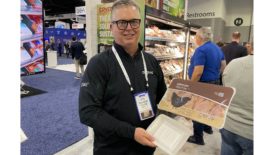
.png?1647275041)
